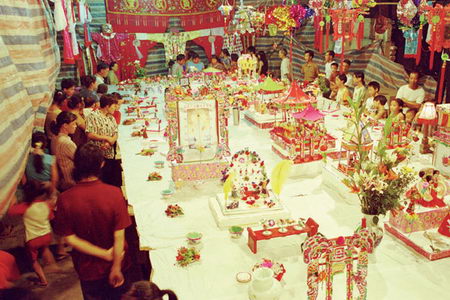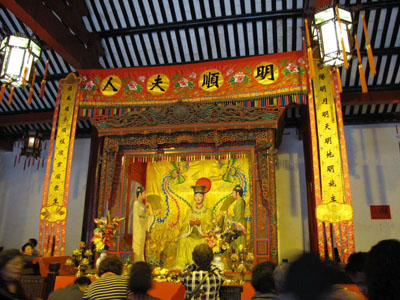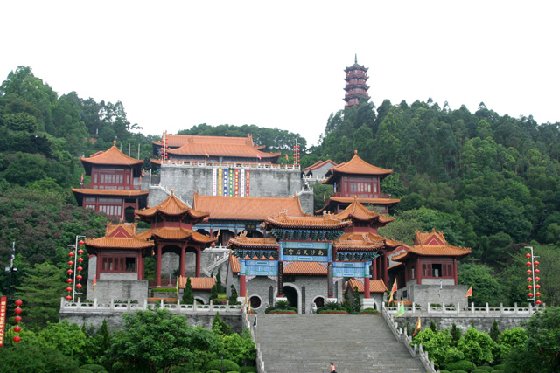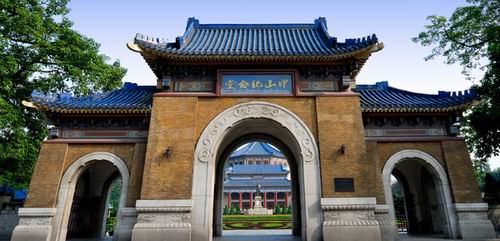A wide variety of porridges is consumed in the Guangfu region. In addition to the white porridge and the raw boiling porridge containing various seasonings, there are also the Jidi porridge, the Tingzai porridge, the minced pork porridge with preserved egg, the ginkgo and barely porridge, the minced fish porridge, the coagulated pig blood porridge, the pig liver porridge, the water snake porridge, the dry vegetable porridge, the couchgrass root porridge, the beef porridge, and the crispy chicken porridge. Many of them have medicinal effects as well and are immensely popular.
There are numerous porridges shops in Guangzhou, and most of them offer boiling porridges cooked in pots on furnaces. The chef throw fresh minced meat into boiling thick soup, and the resulting porridge is particularly tasty and immediately ready to serve.
Among the vast diversity of porridges in Guangzhou, the Jidi porridge and the Tingzai porridge are the most special and have the deepest cultural roots.
The full name of the Jidi porridge is the Sanyuan Jidi porridge. In the imperial examinations in Chinese dynasties, the three top-performing candidates were called Zhuangyuan, Bangyan, and Tanhua, respectively, which were collectively referred to as Sanyuan.
Legend has it that Lin Zhaotang, a Guangdong native who earned the highest score in an imperial examination, enjoyed porridge containing pork balls, pig liver and intestines. When he became Zhuangyuan, people said that he had "jidi". Thus, his favorite porridge came to be known as the Jidi porridge. Consuming Jidi porridge with pork balls, pig liver, or pig intestines were believed to be able to help a candidate rank first, second or third in the imperial examination. Due to its auspicious connotation and use of readily available ingredients, the Sanyuan Jidi porridge quickly caught on in the Guangfu region. If pig kidney, heart and tongue and minced fish were added, the porridge would become the Seven Jidi porridge.
The Tingzai porridge was developed by people living in boathouses. Boathouse residents would row their sampans to the middle of the river to catch fish. The fish was then processed into ingredients for porridge and mixed with jellyfish, peanut kernel, chopped green onion, and deep-fried rice noodles. The resulting porridge would have an aromatic smell and a superb taste, and was therefore very popular among local residents. At the end of the Qing Dynasty, some small boats on the river began offering this porridge to tourists, hence the name "Tingzai porridge" (literally, "small boat porridge"). Although boathouses on the river have long been gone, this special porridge has remained. It still appears frequently in cookbooks, though it is no longer made and sold on small boats.
All materials marked with "source: English.gz.gov.cn" on this website (including but not limited to text, photographs, audio and video materials) are the copyrighted property of Guangzhou International (the official website of Guangzhou Municipality). Without prior authorization from Guangzhou International, any media, website, organization or individual shall not transmit, interlink, distribute or republish such materials in any form. Any media and website authorized to republish such materials shall mark them with "source: Guangzhou International (English.gz.gov.cn)". Infringement of these copyrights will result in legal action.




